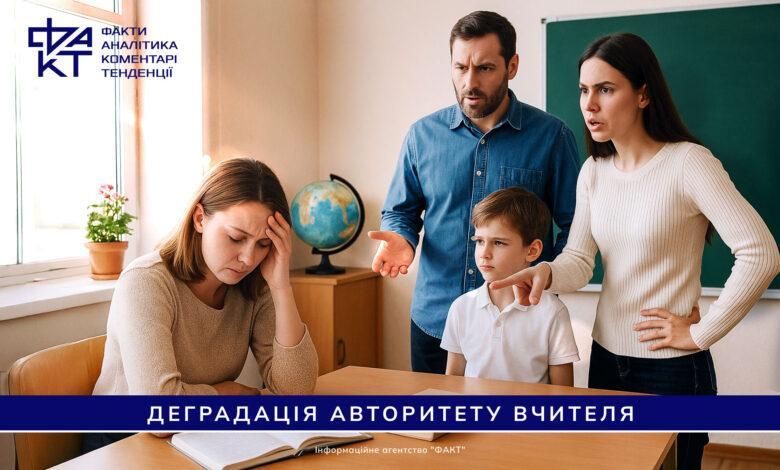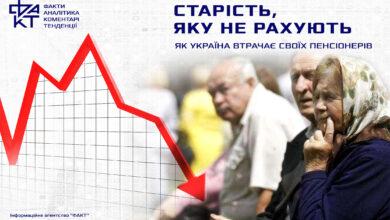Loss of teacher authority as a systemic phenomenon: social factors and the influence of the education system

The silence of respect no longer reigns in school corridors today, but more often there is a hum of disdain. A teacher who was a figure of undisputed authority a few decades ago is now often the target of offensive nicknames, phone shots, bullying on social networks, and sometimes open physical violence. Speaking about the rights of students, the system for some reason bypasses such a concept as respect for the teacher. Student freedom in some schools has long since turned into permissiveness, and the line between a teacher and a “funny” is blurred to the point of obscenity. However, the authority of the teacher did not burn out suddenly, but slowly peeled off, like a layer of old paint. All this is a symptom of a deeper disease, when knowledge ceases to be valued, and weakness becomes an excuse for attack.
Classroom terror: who broke the teacher’s authority
The superior and disdainful tone in the parent chats, as well as the indifference of the officials who see the teacher only as a function and not as a person, gradually turned the teacher from a mentor into an employee who has to serve an audience of 30 students.
Recently, something disturbing happened in Rivne case, which caused an active discussion in society. In the 24th Lyceum, during a lesson, a thirteen-year-old student hit her teacher with a compass because she didn’t like the fact that he insisted that she put her phone away. Everything happened right in the classroom, in front of other students. The police were called, juvenile prevention and psychological services were contacted, but the Department of Education is still avoiding detailed comments.
The investigation of the circumstances continues, the motives of the child’s behavior are being sought. But it is worth understanding that this event does not indicate an accident or a local conflict, but illustrates a deep and unpleasant trend. The teacher is no longer an untouchable figure in the classroom. The situation when a teacher receives a blow from a student did not become possible because something “went wrong” in one school. It became possible because disdain for a teacher has long ceased to be strange. And this is demonstrated by other similar cases.
There was also one in the Kyiv school fixed a conflict that went beyond the usual student-teacher dispute. During the lesson, one of the students listened to music loudly, despite the presence of the teacher and the educational process. After the teacher’s remark, the situation escalated and the verbal tension turned into a physical confrontation. According to eyewitnesses, the student reacted aggressively, pushing and slapping. This incident became another example of how strained the relationship between students and teachers can be in today’s school reality. The child’s reaction to the teacher’s remark, which ends in a physical collision, indicates a deeper gap between respect for pedagogical work and a sense of one’s own limits on the part of the students.
In the city of Pokrov, in the Dnipropetrovsk region, an ordinary day at school ended with a public scandal. It all started with a conflict between an eighth-grade student and a foreign language teacher, which later turned into a fight. The event quickly gained publicity, because video of the incident appeared on social networks. The participants were identified by the police, but the school officially prefers to remain silent. The director of the lyceum refused to comment on the situation, and the teacher himself did not want to talk to journalists.
Another lyceum teacher said that there was more than one conflict between the student and the teacher. According to him, this student systematically disrupted lessons, ridiculed the teacher, and the administration was well aware of this. According to a colleague, the situation dragged on for a long time, and there was no effective response to it. As a result, we have another escalation with physical violence.
This case shocked even those who knew the teacher personally. A teacher at a nearby music school recognized him in the video and noted that she had always considered this man balanced, reserved and professional. She explains his reaction to exhaustion and general psychological pressure. For her part, the schoolboy’s mother also did not want to speak, choosing to remain silent.
While the police work out the details, the incident itself remains a stark example of what happens when school conflicts are turned a blind eye for years. A teacher who faces aggression every day sooner or later finds himself in a situation where he loses control. And while officials play the game of silence, society watches as the school gradually loses its ability to be a safe and controlled environment. It is clear that we are not talking about one specific lesson disrupted by music or rude words. Such actions are a manifestation of a deeper problem, where the teacher is forced to withstand systematic pressure and has no right to emotion. When such a reality becomes habitual, the school ceases to fulfill one of its functions – to provide a space in which not only subjects are taught, but also the boundaries of behavior.
It is obvious that a false balance has been formed in society. We actively discuss the rights of schoolchildren, their psychological comfort, the limits of permissible influence on the part of teachers. But in this conversation, other important topics gradually disappeared – the responsibilities of students, respect for elders, responsibility for one’s actions. The simple rule that a teacher should not be insulted has ceased to be perceived as something obvious. Modern schools often do not have the means to protect their own employees, so the teacher increasingly finds himself in a situation where he becomes the object of verbal or even physical aggression.
These are not isolated cases, but signs of a larger crisis. A teacher loses his status not because he teaches worse, but because society, not without the help of officials, gradually erodes the value of his work. An educational space in which a teacher cannot feel safe ceases to fulfill its function. A school no longer teaches if it is allowed to humiliate the one who should be the guide of knowledge. And while the law enforcement officers find out the details of such incidents, the society must recognize the obvious, that without the authority of the teacher, there is no authority of education, nor education itself as a whole.
Why does a modern teacher become a victim of ridicule
Bullying teachers at school is not an impulsive prank of an individual brawler, but always a team game. Someone throws the first sneer, and others, like hyenas on the smell of blood, join in: they giggle, wink, gossip, incite. And everyone looks not so much at the teacher, but at his reaction. If he got upset, shouted, threw something sharp, then the prank was successful, as the characters in Joan Rowling’s book said.
Psychologists claim that such children are not always angry, but are often deeply confused. Somewhere at home they have a mess with borders. One parent allows everything, the other suffocates with authoritarianism. And here in front of you is a schoolboy who from morning to night lives between “everything is possible” and “you are worthless”. In the classroom, such a child begins to look for an object to release accumulated aggression. It also happens that the child has psycho-emotional disorders that do not allow him to feel boundaries at all. And a teacher who does not know how to defend himself becomes not just a target, but a constant territory of hostilities.
But bullying does not always shout, sometimes it whispers. Students whisper behind their backs, something funny goes around the class, someone “accidentally” peeks into the teacher’s personal life. And the teacher stands in front of the blackboard alone against the chaos flowing in the air. The teacher falls into a conditional trap. Because if you start nervously figuring things out, you’ve lost. If you remain silent, they will kill you. They can criticize for language, for appearance, for intonation, for a mistake. And only a neutral explanation that we are all different can extinguish aggression, disarming better than the wisest speeches.
But if the situation has reached tension, you need to pause, stop the lesson and let everyone cool down. And it will not be appropriate to conduct moral teachings, but to find out what hindered the lesson. Contact with “problem” students is not based on constant supervision. And on a simple household trust, like asking for help, asking about the time. It is necessary to show the students that the teacher is also a person who wants to live this lesson together, and not practice it as a punishment. In turn, physical violence cannot be tolerated under any circumstances. Here we are not talking about the teacher’s mission, but about the intervention of a specialist. Psychologists and parents should find the causes of aggression and provide help to the child.
As you can see, teacher bullying cannot be viewed through the prism of “bad children”. This is a real signal of a failed system. And that is why it can be resisted not only by the personal endurance of the teacher, but by the joint work of the entire school ecosystem. But it begins with someone who is not afraid to look the problem in the eye.
Without screws: why technical reforms do not keep the school
The modern Ukrainian school has long been performing much more than just an educational function. She is forced to become a refuge, a point of stability, and sometimes the only patch of normal life amidst the daily stress, anxiety and consequences of war. But this fragile space is constantly destroyed by waves of aggression, mistrust and indifference. Sometimes these waves explode in loud conflicts, fights, bullying or open opposition to teachers. More often it happens quietly, in the daily humiliation of the teacher, in the fatigue that no one notices.
In response to this, society increasingly perceives the school as a space that needs to be strengthened. Today, officials began talking about introducing security in school premises, installing an alarm button and video cameras. But one must understand the simple truth that physical security is not limited to the frame at the entrance. It will not be ensured by the presence of a policeman in the corridor. If a teacher is forced to work every day in an atmosphere of hostility, where every remark can end in aggression or a scandal, no technical system will remove internal exhaustion.
Usually, the reaction to school conflicts looks like a quick condemnation or another shallow solution. This approach does not change the essence of the problem at all, because the most important thing remains unnoticed. Teachers who endure, because they are used to taking on not only the curriculum, but also other people’s experiences, do not respond to contempt, because they do not have the strength for an additional struggle. There is a real danger in such silence. Those who still remain begin to gradually move away. This is evidenced by the mass exodus of teachers from the profession. When they do leave, the school will lose much more than just a few teaching stakes with them. The very ability of the educational environment to shape a person, and not just mark the presence in the magazine, will disappear.
It is necessary to understand that a school is defined not by walls, not by equipment and not by instructions. It is created by people. If we don’t learn to notice their vulnerability with the same care that we notice lapses in discipline, we will lose those who are still trying to keep the system from finally collapsing. Such high-profile cases of teacher beatings have once again drawn attention to school violence. But at the center of the discussions was not the conflict itself, but something deeper – the destroyed environment in which the modern school exists, and in which the teacher is gradually losing support, respect and elementary security.
Many rightly criticize the government, the managers, the ineffective policy of the Ministry of Education and Science (MES), which played with its reforms, but the problem is much broader. The problem of the teacher’s loss of authority in the eyes of schoolchildren is often explained superficially: they say that the new generation is not the same as it used to be, too free, disdainful, incapable of discipline. But such a point of view ignores the main thing – the source of the child’s attitude towards the teacher is often laid both in the school itself and in the family. It is at home that children first hear their parents commenting on the work of teachers — often with irony, condescension, or even open condemnation.
When a mother or father allows themselves to joke about the teacher’s mistakes in front of their children, to nod contemptuously at “unfit teachers” or, even worse, to question their grades in front of the child, this creates a pattern: the teacher is not a figure of respect. When parents directly say that teachers “can’t do anything”, “only wait for gifts” or “stupidly snap at children”, the child learns that arrogance towards the teacher is the norm.
Added to this is an institutional imbalance. The school administration often puts pressure on teachers, forcing them to raise the grades of children of “influential parents” or those whose families sponsor the school. Such cases, when the teacher is forced to silently change the grade assigned by him, become a direct signal for children: there is no justice here, everything is not decided here by knowledge, but by connections.
Teachers in such conditions find themselves in a vulnerable position. They cannot openly protest because they risk their jobs, and they have almost no tools to protect their professional authority. The humiliation they experience in the system becomes apparent to the children. And children, as you know, very quickly pick up on who you can ignore and who you can make fun of.
Therefore, the loss of respect for the teacher is not just a consequence of childhood depravity or “modern morality”, but a chain reaction to adult behavior. As long as parents show contempt for the teacher at home, and school administrations condone inequality, imposing on teachers the rules of the game, where profit is not important, but principles, it will be useless to talk about the authority of the teacher.
Where parents do not mock, but cooperate with teachers, where the school management does not sell principles for sponsorship contributions, but protects the dignity of the teacher, children learn to respect not only him, but also the very idea of knowledge. Respect is not a requirement for a child, it is an example that he sees every day. And if society wants to raise an educated generation capable of thinking, it must learn to respect those who “sow intelligent, good and eternal.”





